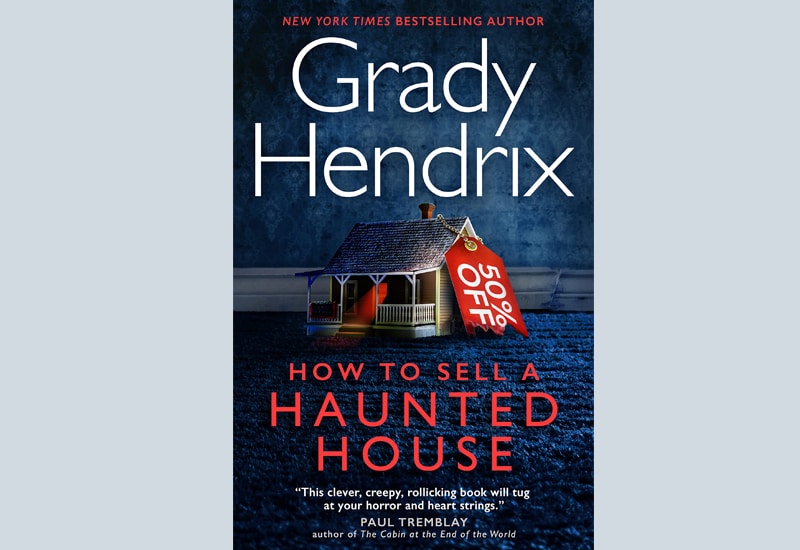‘…when spooky fucking haunted dolls start writing messages on the wall, you should get the fuck out.’ This seems like a fairly self-evident truth, but Louise, the protagonist of Grady Hendrix’s latest horror novel, is determined not to let the forces of the irrational overwhelm her lifelong commitment to reason and order. Needless to say, she’s foolish for doing so, and the consequences of not listening to her brother Mark’s sage advice are far more terrifying and far reaching than she could have imagined. These consequences, of course, are what keep you reading as Louise discovers that ‘There was no such thing as too much. There was just more and more… Life didn’t care.’
At the centre of How to Sell a Haunted House is the fraught sibling relationship between Mark and Louise, whose parents have just died in a car accident. Louise, the smart and successful single mother who left Charleston, VA to study and find work as an award-winning industrial designer in San Francisco, is forced to leave her daughter, Poppy, behind and return to her hometown to deal with the funeral and estate. Mark, the slobby college drop-out and jobbing bartender, wants nothing less than to have his perfect sister running the show, and is obviously delighted when it turns out that he has inherited their parents’ house. We all know that inheritance battles can get messy, but when there’s a possessed puppet manipulating your mother’s vast horde of puppets (she had a Christian puppet ministry, naturally), things can get very messy – and very violent – indeed.
Amid all the violence and sibling sniping, Pupkin emerges as a truly horrifying creation, delighting in inflicting pain and destruction on those who threaten to starve him of the attention he craves and feels he deserves. It takes a certain gift to turn the phrase ‘Kakawewe’ into something other than an absurd joke, but as Pupkin’s victory cry, it becomes an echoing declamation of childhood egotism and lawlessness.
Now, I haven’t been a regular reader of horror since a relatively lengthy phase in primary school when I would read up to four Goosebumps books a day. How to Sell a Haunted House took me back to that period of my life and reminded me of how much enjoyment can be taken from ludicrous stories about possessed dolls – especially when they’re written for grown-ups and can include graphic violence, swearing, and a ‘radical puppet collective’ making papier mâché penises and traumatising elementary school children. It’s perhaps a little early for my second childhood, but when the time comes, I may well find myself having a lovely time working through Hendrix’s other novels and back into Goosebumps.







Click here to change your cookie preferences